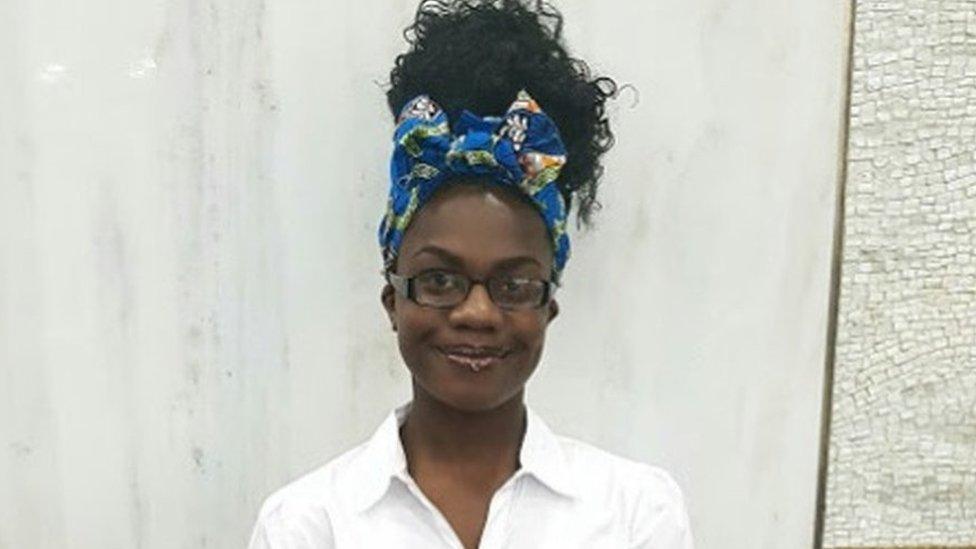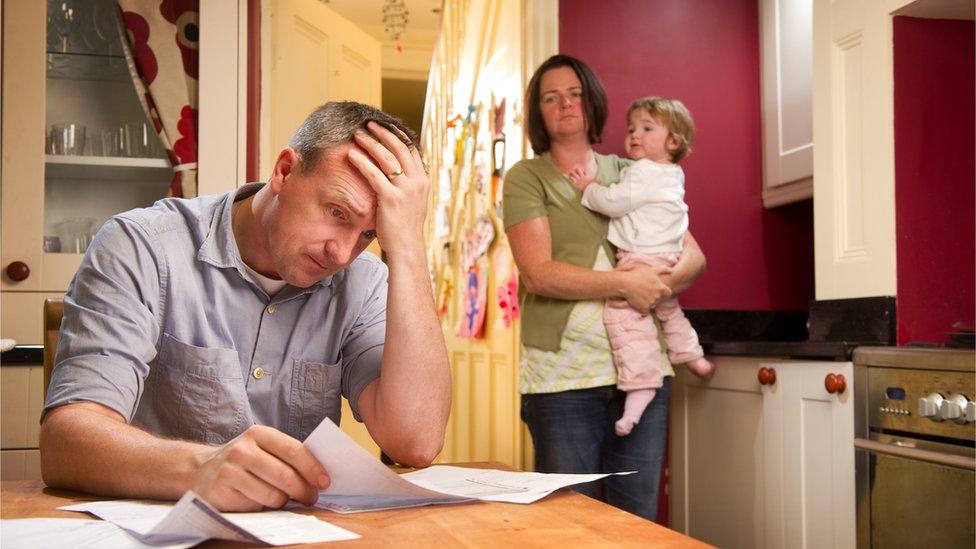Covid: 'It's a relief for us to talk about money'
- Published

Tekisha Henry says she became more confident when discussing finances
Living semi-independently, but in care, and on a small weekly allowance, Tekisha Henry learnt how to budget.
She had never felt she could talk about money.
"Young people are often in competition with each other," she said.
"You do not feel confident enough to say you don't have enough. There is a stigma attached to that."
Now aged 19 and in her own social housing flat, she speaks at workshops for young people leaving care. She tells them that young people boasting about spending on social media may be a facade, and - like her - they can learn about, and discuss, financial literacy.
"They can relate. We are not taught to be open about money. It is a relief for them when we do," she said.
Newly published research suggests that 18 to 24-year-olds are the most likely to feel uncomfortable talking about their finances with family and friends.
They are also among the hardest hit financially by the effects of the coronavirus pandemic.
Around 71% of them worried about money once a week, according to a survey of more than 5,000 people by the Money and Pensions Service - a government-backed guidance body.
Yet, 37% of them felt uncomfortable talking to their loved ones about their money situation. Some 46% wished they could open up but reported feelings of shame as their biggest reason for avoiding doing so.
"In our generation the whole saving concept's gone out the window"
People with a black, Asian, and minority ethnic background also reported Covid-linked money worries. Nearly half (45%) said they were worried compared with the national average of one in three (35%).
Four in 10 wished they could be more comfortable talking to friends and family about their finances. This follows a research by the City regulator, the Financial Conduct Authority (FCA), which found those from a black and minority ethnic background were more likely to have taken an income hit during the pandemic.

Your money secrets
The survey also suggested that four in 10 people are keeping "money secrets" from their loved ones.
Two people, who do not want to give their names, told the BBC about how this had affected their relationships.
"My wife and I got our salaries paid into our personal bank accounts. I wasn't honest or transparent with how much I was paid. Over the years I saved money in premium bonds and spent money selfishly," said one man, from Northern Ireland, now facing divorce.
"The result of my wife finding out was a total loss of trust. I would do anything to undo it now."

Money worries can affect mental health (picture posed by models)
A woman aged in her 50s, from England, said: "I was struggling on my own with debts that had accumulated. I was working full time and renting a house. I was on a low wage.
"I was courting a guy. When we decided he would move to England I had to put my cards on the table which was very distressing as I was ashamed. As hard as it was, I had to confront all my debts and contact the relevant companies and am currently paying back monthly [on a debt plan]."

Breaking the 'money-worry cycle'
Sarah Porretta, strategy and insights director at the Money and Pensions Service, external said: "The pandemic continues to make the world an uncertain place. It is clear that the impact on people's financial wellbeing is acute, particularly for young adults and BAME communities.
"Speaking to someone, whether a family member, friend or professional, can help break the money-worry cycle, which can occur when people are concerned about having money conversations, often feeling worse for bottling up their money worries."
As previously reported, the research also suggested that millennials aged 25 to 34 formed the generation most secretive about their money, with three in five hiding details of their finances.
Tekisha Henry's advice to young people in her workshops - run by the MyBnk social enterprise and charity - is to keep a positive mindset about money.
"Don't just work for money, make it work for you," she said.
- Published18 November 2020

- Published9 November 2020

- Published13 May 2024
